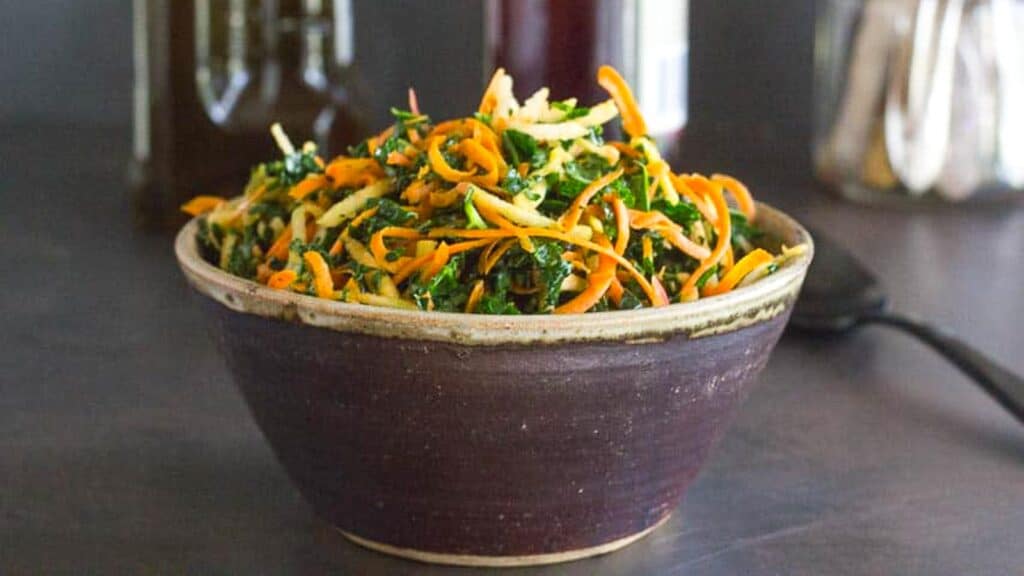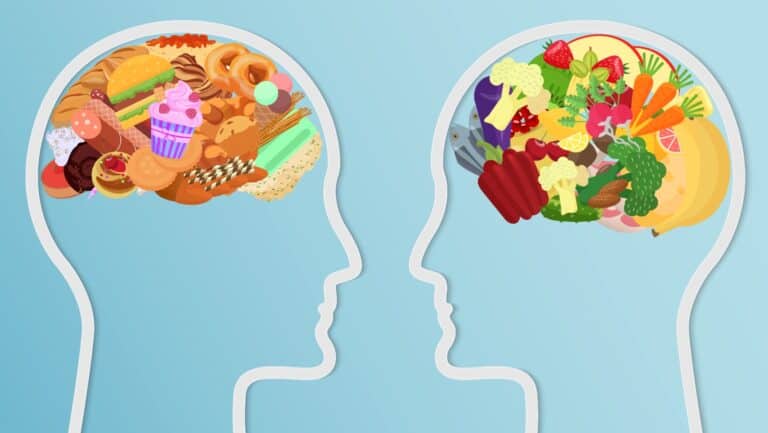8 Reasons to Sip on Carrot Juice Every Day
Carrot juice is more than a bright, sweet sip—it’s a compact package of carotenoids, potassium, and vitamins A, C, K, and B6. According to the United States Department of Agriculture’s FoodData Central, one cup (about 240 ml) of 100% carrot juice typically provides ~689 mg potassium, ~20 mg vitamin C, ~36 µg vitamin K, ~2.2 g protein, ~1.9 g fiber, and ~94 kcal, along with ~21,955 µg of beta-carotene (provitamin A).
That beta-carotene converts to ~1,829 µg RAE of vitamin A—about 200% of the Daily Value. Let’s take a look at the benefits of carrot juice.
Front-line support for your eyes

Carrots’ beta-carotene converts to vitamin A, essential for vision (especially low-light vision) and the health of the eye’s surface. As the NIH notes, “Vitamin A is involved in immune function… [and] plays a critical role in the normal formation and maintenance of the… eyes.”
Carrot juice also supplies lutein and zeaxanthin (≈786 µg per cup), carotenoids that concentrate in the retina. The National Eye Institute explains, “Lutein and zeaxanthin are carotenoids… and, when consumed, they accumulate in the retina.”
Heart and blood pressure help (thanks to potassium)

A single cup delivers ~689 mg potassium—about 15% of a 4,700 mg target—putting a dent in a commonly under-consumed nutrient. The American Heart Association puts it plainly: Foods with potassium can help control blood pressure by blunting the effects of sodium.
Antioxidant defense, measured in the bloodstream

Randomized and controlled trials show carrot juice can raise total antioxidant status and reduce lipid peroxidation markers. In one trial, daily carrot juice increased plasma total antioxidant capacity and decreased malondialdehyde (a marker of oxidative stress).
Skin support and photoprotection (from the inside out)

Carotenoids such as beta-carotene, lutein, and zeaxanthin can bolster the skin’s response to UV exposure. A recent review concluded that carotenoids provide photoprotection against UVA-induced pigmentation and modulate markers of oxidative stress in the skin.
Emerging work in 2025 continues to link dietary carotenoids with improved skin hydration and elasticity in photoaging models.
Immune system backup

Because a cup of carrot juice supplies ~200% DV vitamin A (from beta-carotene), it supports mucosal barriers and immune cell function.
A fast, legitimate vegetable serving

If you struggle to meet your veggie goals, 100% vegetable juice counts. “1 cup of 100% vegetable juice” counts as 1 cup from the Vegetable Group, per USDA MyPlate. Adults generally need 2–3 cup-equivalents of vegetables daily.
Hydration + electrolytes for active days

Carrot juice is ~89–90% water and supplies meaningful potassium, making it a hydrating option that helps replace electrolytes after exercise or on hot days.
A compact package of hard-to-get nutrients

Beyond vitamin A and potassium, that same cup typically delivers ~20 mg vitamin C and ~36 µg vitamin K, plus smaller amounts of vitamin E and B-vitamins—nutrients many people underconsume.
How much, how often?

For most adults, ½ to 1 cup (120–240 ml) per day of 100% carrot juice is a sensible way to diversify veggie intake while keeping added sugars at zero (it’s still naturally sweet, just low in fiber).
Remember that whole vegetables are ideal for fiber—consider blending in some pulp or pairing your juice with a fiber-rich snack. (USDA guidelines allow juice to count, but aim to meet most veggie needs with whole forms.)
Smart cautions

- Skin tint isn’t dangerous: Very high intakes of carotene-rich foods can cause carotenemia (yellow-orange skin), a benign and reversible condition.
- Supplements ≠ food: Smokers and former smokers should avoid high-dose beta-carotene supplements; large trials found increased lung-cancer risk with supplements (not foods).
- Sodium & sugar context: 100% carrot juice has no added sugar, but like all juices, it concentrates natural sugars and has less fiber than whole carrots. Prefer small portions and whole vegetables for the bulk of your intake. (Dietary Guidelines & MyPlate.)
Quick nutrition snapshot (per ~1 cup / 240 ml)

- Calories: ~94 kcal
- Potassium: ~689 mg
- Vitamin C: ~20 mg
- Vitamin K: ~36 µg
- Fiber: ~1.9 g
- Beta-carotene: ~21,955 µg (≈1,829 µg RAE vitamin A ≈ ~200% DV)
A small daily glass of 100% carrot juice can meaningfully boost eye-protective carotenoids, potassium, and vitamins—with measurable antioxidant effects—while helping you hit your vegetable target. Keep portions modest, favor whole veggies for fiber, and skip high-dose beta-carotene supplements if you smoke or used to smoke.
Disclosure line: This article was developed with the assistance of AI and was subsequently reviewed, revised, and approved by our editorial team.
16 Best Jobs for Pregnant Women

16 Best Jobs for Pregnant Women
Pregnancy is a transformative and joyous period in a woman’s life, but it comes with unique challenges and demands. One of the most crucial aspects during this time is ensuring a healthy work-life balance.
Finding the right job during pregnancy is not just about earning an income; it’s about maintaining your health, well-being, and peace of mind.
Science Tells Us What To Expect As We Age: Strategies for Thriving in Later Life

Science Tells Us What To Expect As We Age: Strategies for Thriving in Later Life
How does aging affect our bodies and minds, and how can we adapt to those differences? These are questions that pertain to us all. Aging gradually alters people over decades, a long period shaped by individuals’ economic and social circumstances, their behaviors, their neighborhoods, and other factors. Also, while people experience common physiological issues in later life, they don’t follow a well-charted, developmentally predetermined path. Let’s take a look at what science has told us to expect.






